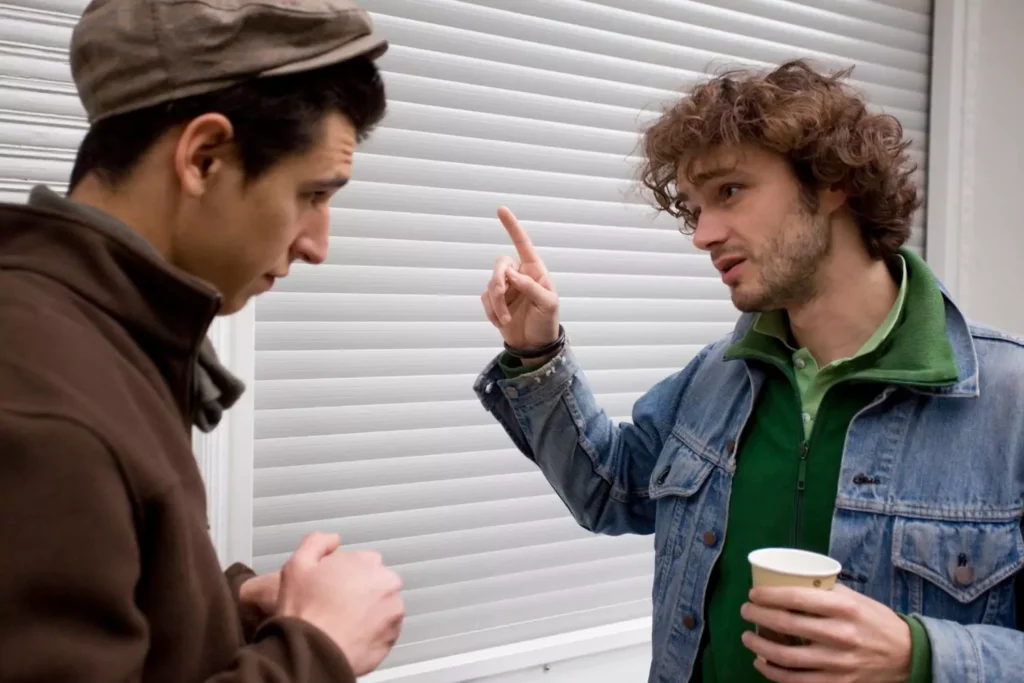Assumptions. We all make them occasionally. Oh, we know we shouldn’t. We know we need to be careful about assuming what someone else’s experience is like. But sometimes we do it anyway, making quiet judgments about another person. Stereotyping them. And when it comes to marriage and singleness — and the differences between those two different seasons of life — it’s pretty easy to go there.
I didn’t get married till I was 34 years old, so I spent quite a few years as a single adult, often longing deeply for marriage. During these years, I pined for connection, companionship and intimacy. And if I had a quarter for every time some well-meaning person had told me, “Oh, it’ll happen when you stop looking,” well, I could have retired.
After 14 years of marriage, though, that intense single season seems like a long time ago. My kids are 8, 9 and 12, and when I’m not working, I’m probably doing something related to them. More than once amid the pressures of this differently intense season, I’ve found myself almost unconsciously idealizing the “simplicity” of singleness. (My single self would’ve beaten me over the head with a bat for that silly thought.)
In either life situation, then, we can make assumptions and judgments about what life must be like for someone in a different place. Let’s look at a few of those, starting with the ways single guys can stereotype married guys.
Single stereotypes of married life
As a single, I often suspected that being married was both more satisfying and just plain better than being single. And a big part of that had to do with my God-given desire for intimacy — both emotional and physical. So let’s cut to the chase with this first stereotypical assumption:
Stereotype #1: Married guys can have all the sex they want
For Christians who are swimming against the permissive nature of our culture and seeking to preserve sexual purity, sex is one of the driving components of the desire for marriage. That’s a good thing, because God has designed us to experience physical and emotional intimacy with a marriage partner.
As a single person pursuing sexual purity and wondering about that experience from the “outside,” it’s easy to imagine marital sexual intimacy as nonstop and never-ending. I remember hearing married guys talk about their lives and struggles when I was still single, and I’d sometimes think, Yeah, but you get to have sex as much as you want, and that should make it all better. In other words, I didn’t have much sympathy for married guys because they had access to something I longed for.
Certainly the honeymoon season after getting married is a time of delight and wonder. Sex in marriage is a good, wondrous gift because God made it that way. But I think most married men would agree with me when I say that physical intimacy in marriage isn’t happening all the time.
A related stereotype of married guys is this:
Stereotype #2: Married guys don’t struggle with lust
When I was a young single guy I heard a married man talk about his struggles with pornography. At the time, it just didn’t make any sense to me: You’re married. Why would you still be tempted by lust or porn? My assumption here? That having a wife meant that you never noticed another woman or struggled in any way with impure thoughts.
Now, I do think there is a kernel of truth here. When a man and woman are in an emotionally and physically satisfying relationship, those God-designed needs and desires are being met in the way He intended. But that doesn’t mean that sudden or stray sexual thoughts and temptations simply disappear. And a married man who’s wrestling with lust or pornography may be more reluctant to confess those sins, because now they’re affecting his relationship with his wife, too. As with the first stereotype, there’s enormous complexity here, and more than I realized when I was single.
Stereotype #3: Married guys don’t struggle with loneliness
I clearly remember nights when I was single when I’d go to a coffee shop to read, journal, pray and … try to stare down the fact that I felt so alone. Marriage seemed like the ultimate cure for loneliness: By definition, married people aren’t alone anymore. You’ve always got someone to talk to, someone to do things with, someone to bounce ideas and dreams off of, right?
In a good, healthy marriage I think those things are largely true. But sometimes in marriage, we can run into what I call “cold spots,” those moments when the person we love and live with suddenly seems like a mysterious stranger. For whatever reason, we can struggle to understand each other. To hear each other. To articulate what’s going on inside. It feels like swimming across a lake and suddenly paddling into one of those shocking cold spots every lake has, where a pocket of water is a few degrees colder.
It’s a disorienting experience, because we can feel temporarily isolated from our spouses — even in a good, strong and communicative marriages. In a word, even marriage can feel lonely. And the first few times it happens, it’s easy to think, I didn’t think this was supposed to happen once I was married.
The beauty of a covenant commitment is that there’s time and space to “swim” through these cold spots. But they can still cause you to feel deeply alone in ways that I wouldn’t have thought possible when I was a single person dreaming of marriage.
Married stereotypes of single life
OK, now let’s flip the script. What about the stereotypes and assumptions married guys sometimes make with regard to their unmarried friends?
Stereotype #1: You’re still single because you’re unwilling to take a relational or romantic risk
It’s easy to assume that guys who are still single in their late 20s or 30s or 40s are just unwilling to put themselves out there. We assume, a bit like Job’s counselors, that if you’re still single, you’re obviously doing something wrong and it’s your fault. And so married people — often well-intended — say things like, “You just need to try harder, go on some dates, give it a chance.” As if just taking one or two risks would instantly lead to a trip down the aisle.
When I was in my early 30s and without any obvious prospects, I heard a well-known Christian leader say that anyone who was single past the age of 35 was in that place because he chose it, that anyone who wanted to be married should have done so by that age. I think that observation was intended to spur guys to take a risk.
But the stereotype made me absolutely furious. I thought, What does he know about my life? My circumstances? I’d taken risks, but the relationships I had initiated or pursued hadn’t worked out for various reasons. I felt harshly judged by that generalization. Its oversimplification of a complex issue was, I felt, made by someone who likely didn’t endure a long season of singleness. (Although this, too, is an assumption on my part — you see how easy it is to go there?)
The second stereotype is a related one, but perhaps focused on a different aspect of a person’s character:
Stereotype #2: You’re still single because you’re not willing to commit or close off your options
Now, admittedly, the stereotype of a guy who won’t commit may have some basis in reality. Somewhere along the line, we’ve all probably known a “player” — guys who easily attracted women’s attention, guys who were more interested in “playing the field” than settling down and making a real commitment.
That said, assuming that someone is still single because he’s unwilling to commit is a pretty harsh judgment to make about a guy without taking the time to really understand the many different fears or obstacles that might be holding him back in the romance department.
Stereotype #3: You’re still single because you’re dating wrong — and it’s an easy fix
Have you ever had this experience: You’re spending an evening with a married couple who are determined they can identify the real issue behind your prolonged singleness. You know you’re in trouble when the barrage of diagnostic questions and dating advice starts to flow freely. Do you think you’re being too aggressive? Do you think you’re being too passive? What about your wardrobe? Maybe if you got some new clothes or started working out more or lost some weight. Have you thought about online dating services?
Or my favorite of all: Well, it wasn’t until I stopped looking that I met my wife. Once I quit looking so hard, trying so hard — boom! There she was. That last bit of counsel always made me want to retort, “Hey, great advice! Do you want to pluck my eyes out, or should I do that myself?”
When it comes to helping others, in whatever station of life we may find ourselves, I’ve gradually learned that the best approach is to leave out the assumptions, let go of the urge to offer quick fixes, and just try to be present with others. Ask questions. Listen. Laugh with those who laugh and mourn with those who mourn (Romans 12:15).
I have a single friend in his 40s who would love to be married. I’ve known him for many years, and I don’t know why each of the relationships he’s pursued hasn’t worked out. There’s tremendous mystery there, questions about his experiences that I don’t have the answers to or the right to judge or try to fix.
God hasn’t called me, the “married guy,” to fix my friend. Rather, he’s called me to be present with him in the things he faces. Sometimes this means listening. Sometimes praying. Sometimes just being quiet after he’s poured his heart out. And sometimes offering concrete suggestions, when asked, about what he might consider doing differently.
If you’re a single guy or a married guy, it’s certainly easy to make false assumptions about the other. I know I’ve done it when I was a single and I still do it now that I’m married (though hopefully less since I was in the shoes of the single for so long). But I’m learning how to let go of the stereotypes and shallow judgments — they ultimately hinder me from being an (admittedly imperfect) conduit for God’s love.
So let’s ask questions and listen. And not just assume.
Copyright 2018 Adam Holz. All rights reserved.











